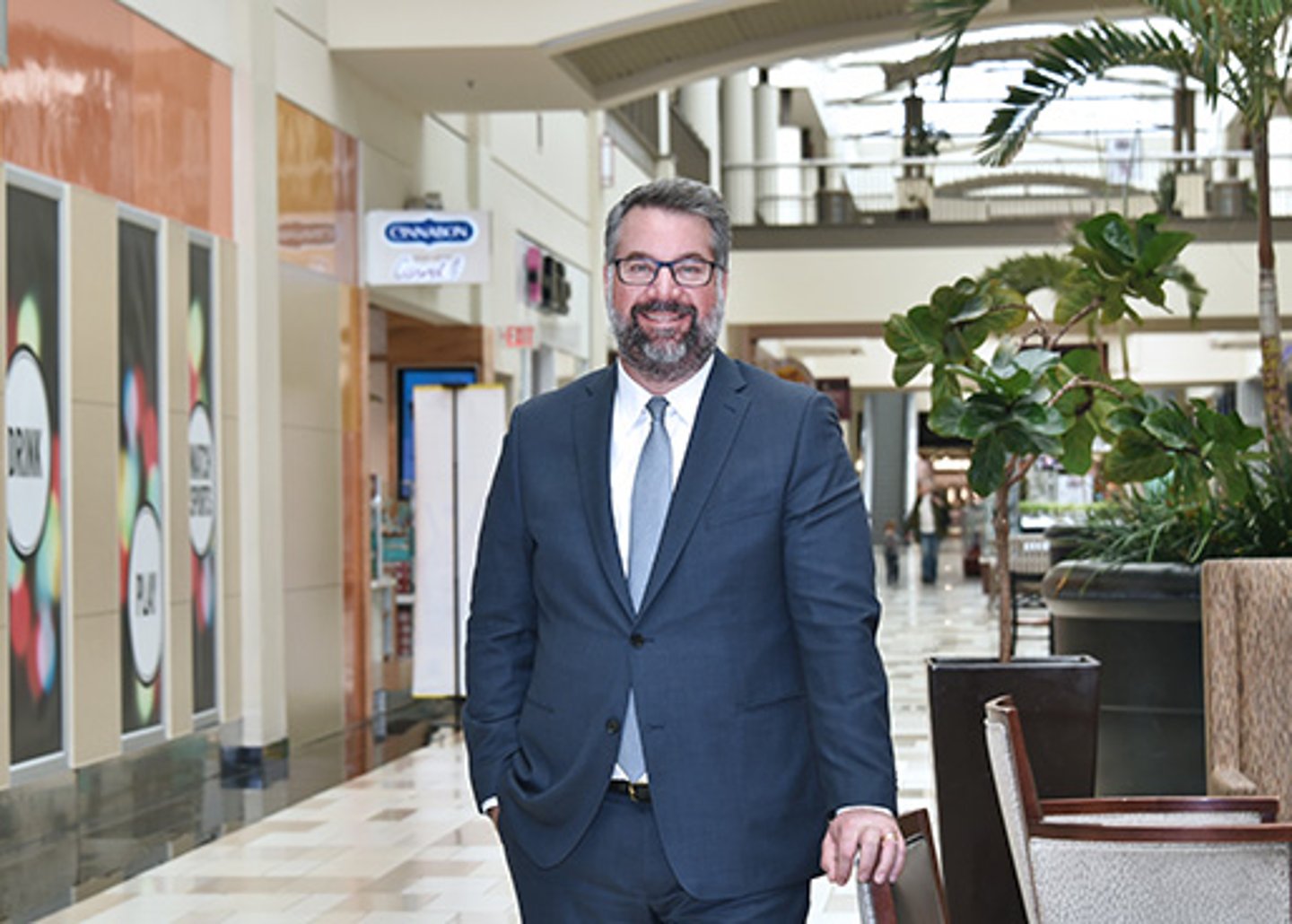5Qs for Stephen Congel on hard times
The 2.4 million-sq.-ft. Destiny USA center has an entire level dedicated to dining and entertainment, the world’s most extensive indoor ropes course, an IMAX theatre, and more than 250 shops that draw international visitors to Syracuse, N.Y.
“We decided to expand into three nontraditional areas: discount stores, outlets, and entertainment and food and beverage, and It’s been far more wildly successful than we’d ever hoped,” said Stephen Congel, CEO of the center’s owner, Pyramid Management.
Being a developer who’s ever bullish on the stature of retail real estate, we decided to ask him about aggressive adherence to the physical marketplace.
There’s that old saying, “Whatever doesn’t kill you makes you stronger.” Is that how you feel about what’s going on today?
Of course. When you face turmoil like our industry is facing, it forces you to take a step back and re-evaluate everything that’s shaping and affecting your business. When times are good, it’s easy to collect the rents and get lazy. You always have to be a bit concerned to be the best.
Give me one specific example of how a bad situation turned your company or one of your properties in a more positive direction?
It was mayhem during the financial crisis between 2008 and 2010. The bottom had fallen out of the world. Nobody knew what to do. As enclosed mall owners with expiring and near-term debt who had operated in these markets for decades, we told them that if you want to get paid back, leave the properties with us and they did. Our centers had a lot of cash flow coming out of them and we used it to pay down debt and service the properties. We were able to go out and make deals during the crisis while a lot of others had to hold back. That allowed us to turn the 2010 to 12 recovery into a period of investment. We did massive renovations to update all of our properties.
Clearly, changing consumer desires have played havoc with the ratios of shops to experiences in malls. How has your leasing organization adapted to seeking out these new-age tenants?
It’s always been our philosophy that—no matter how hard, no matter how expensive—you always pick the best location. You put your properties at the meeting of the two biggest highways. Always easiest to get to our assets. Next comes the size of the center and the complexion of the tenant base. We always sought out diverse tenant—new and creative tenants with the highest traffic potential. We were very early at making entertainment and food and beverage tenants bigger parts of our mix, been doing it since the 80s. We got to know the players, but we also learned how to put them in. New adopters are taking the easy way and putting these new tenants in out-lots. We want them all in a cluster in our centers.
You have hotels on two of your properties. What are some of the dynamics of the interplay between hospitality and retail?
We think it’s a natural solution. They’re international tourism draws. Having hospitality on our properties allows us to market them under one umbrella. Eighty-three percent of our Embassy Suites guests at DestinyUSA visit Destiny USA. Seventy-two percent of guests at the two hotels we have at Crossgates go to the mall. We have stay-and-save coupons and promos for guests worth hundreds of dollars. Our opportunities are limited by wallets and arms—how much they can afford and how much can carry. We have a Shop and Drop service that lets them buy as much as they want, drop off their packages with us, and head to a restaurant or entertainment venue. We deliver their packages to their rooms.
Who are the retailers that will emerge stronger from the so-called retail apocalypse?
The biggest impact the internet has had on bricks and mortar is how it has educated the shopper on selection, price, and delivery. Today’s consumers are is incredibly educated. They now have great price and option savvy. The can order 10 pairs of shoes online and return eight of them. So the retailers we see streaming into brick and mortar are successful online sellers like Indochino, Warby Parker, and Lovesac.


